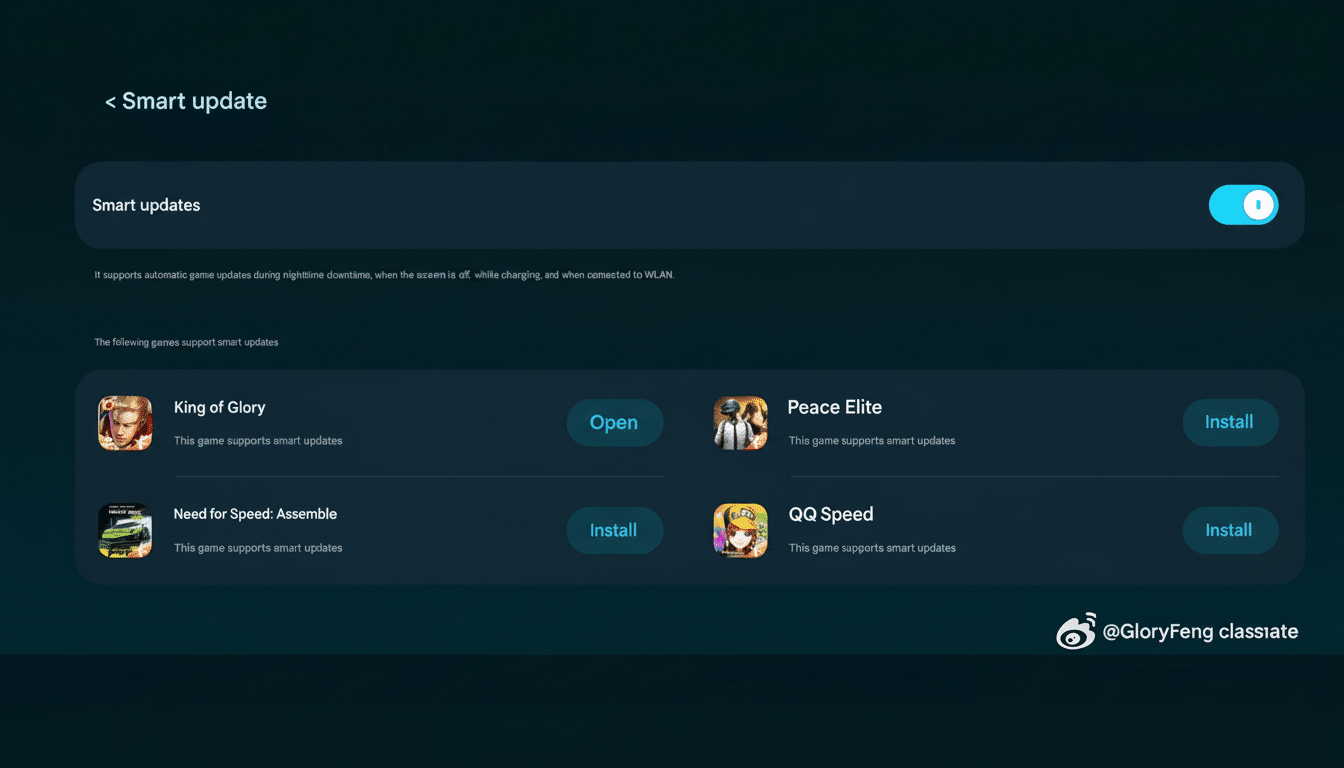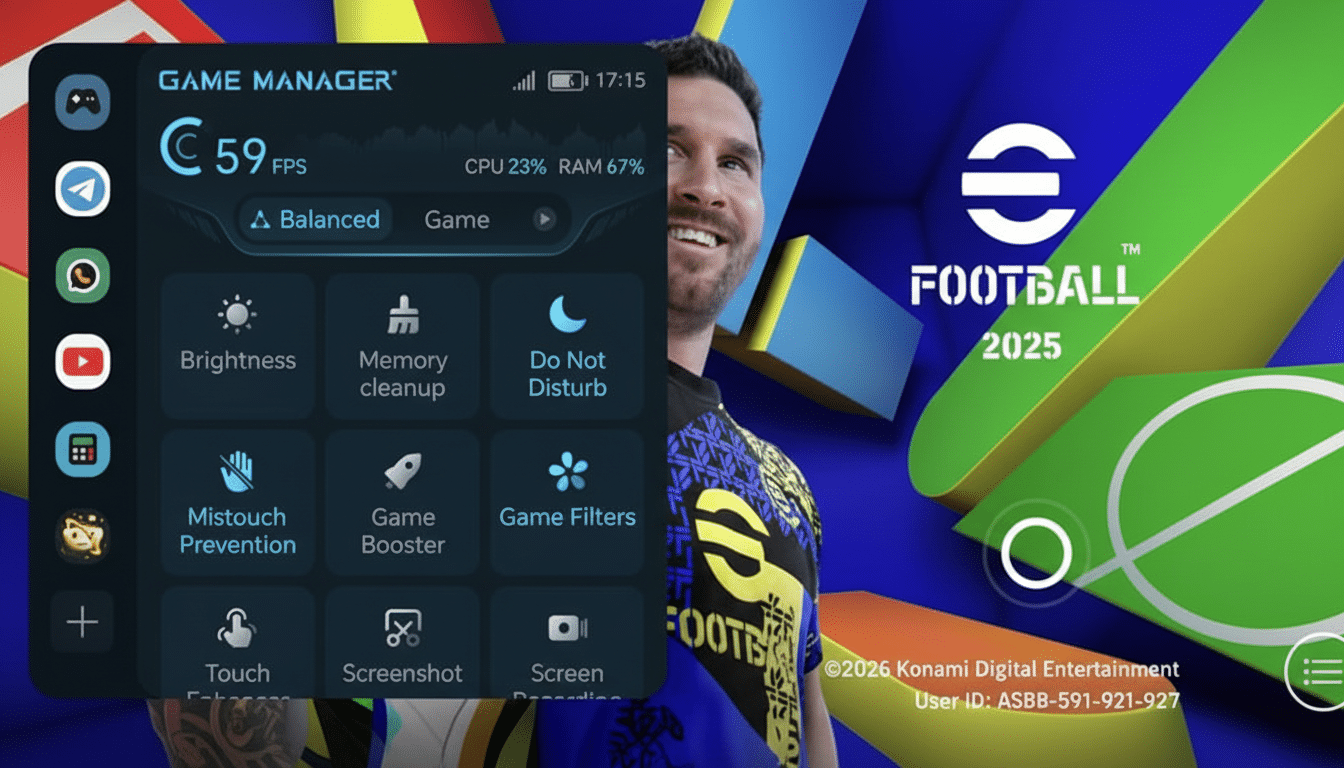Big mobile games are consuming storage and time. Nothing kills a short, quick play session like hitting “launch” and getting tripped up by an unexpected multiple-gigabyte patch. That’s why a new background update feature announced by Honor feels like the kind of pragmatic upgrade that Google needs to trickle down to the Play Store — and every Android gamer — sooner rather than later.
What Honor just rolled out with Smart Game Update
Honor touts its Smart Game Update feature, which apparently identifies new game resource packages and downloads them overnight when your phone is charging with the screen off and Wi‑Fi connected.
- What Honor just rolled out with Smart Game Update
- Why this solves a real and common mobile gaming pain
- What Google already offers and what the Play Store lacks
- How a Play Store edition of this background updating might work
- What consoles and PC teach about seamless game patching
- The bottom line for Android gaming and background updates

The concept, which has been propounded by an Honor Game Engineering Lead on Weibo and picked up by IT Home, is simple: wake up, pick a game, and start gaming because last night’s patch has already dropped.
There are two caveats. One, the feature seems to be exclusively supported in Honor’s app store in China and just a few games. Second, Honor engineer comments imply that it prioritizes later patches, not the gargantuan initial content uploads you need to sit through the first time you boot most titles. Still, it’s a meaningful quality-of-life win that addresses a daily pain point for mobile players.
Why this solves a real and common mobile gaming pain
Game sizes on phones have grown and grown. On Android, Genshin Impact can surpass 35 GB with content packs. Call of Duty Mobile and PUBG Mobile typically stretch into double-digit gigabytes as seasons progress. Live-service games drip frequent updates, and if you miss a week, odds are high that when you finally do sit down to play, you’re left staring at a progress bar.
Google has already made efforts to reduce downloads. The company’s “file-by-file” patching shaved update sizes by an estimated average 65% when it was released, and Android App Bundles plus Play Asset Delivery serve up device-targeted content more efficiently by delivering only what a device actually needs. But those benefits primarily apply to APK and asset packs managed by the Play pipeline. This is why the pain persists: Many studios, still, will force big in-game patches through their own launchers that operate outside the confines of the Play Store’s auto-update system.
What Google already offers and what the Play Store lacks
In theory, Android has a lot going for it: automatic app updates, Wi‑Fi-only downloads, battery-aware scheduling, and Android App Bundles with equivalent Play Asset Delivery modes like install-time, fast-follow, and on-demand. In reality, the last mile is gone. The Play Store doesn’t always prefetch the in-app resources that power so many big games on first download and after a content drop. The result is predictable: “Update required” screens at the worst possible time.

A Play Store–level fix would close that loophole. It would work in conjunction with supported games to prefetch resource patches outside the user’s business hours, but with the same safeguards users have come to expect from Play Protect and Android power code.
How a Play Store edition of this background updating might work
Google might reveal a “Background Game Patch Prefetch” API connected to Play Asset Delivery and confirmed by in-app patch endpoints. The Play Store could do the following with user approval:
- Discover individual game updates coming from participating titles and stage them overnight on Wi‑Fi while charging.
- Provide per-game settings as well as a global toggle, and storage limits to prevent them from overriding photos or videos.
- Use fast-follow or install-time asset packs to cover both subsequent patches and first-run content so players can launch immediately after install.
- Implement integrity checks, signature verification, and support for rollback to secure data from tampering and avoid the transfer of corrupted assets.
This would make the Play Store a proper concierge for live-service games, not merely an APK-delivery utility.
What consoles and PC teach about seamless game patching
Consoles and PC storefronts have trained players to expect smooth, painless patching. PlayStation and Xbox queue game updates in rest mode; Steam often preloads patches so day-one fixes are downloaded and ready the instant you take a seat. Mobile gaming has reached that scale and ambition. The update experience ought to be better as well.
The bottom line for Android gaming and background updates
Honor game updates during #Overnight, move the numbers, Honor & notice a change. The new Honor #overnight game updates mean you’re waiting less and playing for longer. Baking an equivalent into the Play Store — where it’s combined with modern asset delivery and tight security — would remove one of Android gaming’s longest-held frictions. It’s the sort of pragmatic enhancement that a user would notice each and every morning.

